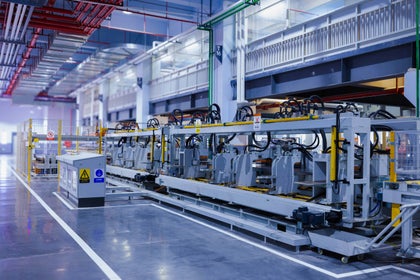Archive
-
2025
-
2024
-
2023
-
2022
-
2018
Categories
Research projects
Enhancing energy system control and interoperability for Vortex’s iBMS
Conestoga’s SMART Centre partnered with Vortex to upgrade its intelligent battery management system with new automation features and improved compatibility for real-world deployment.
Advancing greywater reuse for sustainable water management in Ontario
This project explores how greywater recycling systems can be adapted for use in commercial, institutional, and industrial buildings across Ontario.
Building an AI-powered matchmaking platform for enhanced business partner matches
This project focused on developing a prototype web application to help companies connect with one another during international trade events and missions. The goal was to create a tool that uses AI to recommend connections between companies with shared interests, helping them stay engaged beyond the event itself.
Charting a path to net zero homes through optimized retrofits
Single-detached homes account for more than half of Canada’s residential buildings and consume more than twice the energy per capita compared to apartments. To help meet Canada’s 2030 and 2050 emissions reduction targets, this research focused on identifying the most effective retrofit strategies to reduce energy use in these homes, using a case study modelled on a house in Cambridge, Ontario.
Turning raw data into real-time insights for advanced manufacturing for Karmax
Conestoga researchers collaborated with Karmax to develop a machine learning and artificial intelligence prototype that integrates directly into the company’s existing digital twin software.
Pedestrian data collection at Conestoga's Waterloo campus
This research project leveraged innovative data collection methods to map pedestrian movement at the Waterloo campus
Analysis and predictions of land use/land coverage changes with the CA-Markov model
This study examined historical land use and land cover changes in Guelph from 2001 to 2022 and forecasted future trends up to 2037 using the Cellular Automata-Markov model.
Innovative energy management for electric vehicle charging and storage at Conestoga's SMART Centre
The project was developed in two phases to enhance system intelligence and usability. In the first phase, communication data is integrated into a centralized database, while an interface is established to connect the system with IT management tools, enabling real-time monitoring and greater visibility.
Enhancing efficiency and care with AI-powered document sorting for Spring Medical Corp.
In Canada’s medical clinics, managing the steady flow of incoming electronic documents is a significant, time-intensive task. Addressing these gaps, Spring Medical Corp. sought to develop a secure, open-source AI solution that could integrate seamlessly into OSCAR-based EMR systems.
Advancing machine learning for industrial automation at Archronix
Archronix sought to enhance the capabilities of its industrial control unit by developing advanced machine learning functionalities for automotive feature recognition. The existing control unit had the potential to integrate TensorFlow-driven image processing through third-party accelerators.











